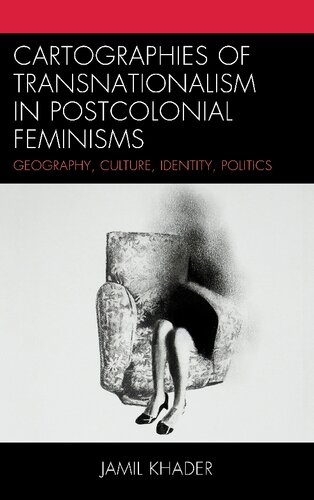(Ebook) Cartographies of Transnationalism in Postcolonial Feminisms: Geography, Culture, Identity, Politics by Jamil Khader ISBN 9780739170632, 0739170635
This book proffers a new theory of the radical possibilities of contemporary postcolonial feminist writings from Africa, the Middle East, the Americas, and the Caribbean, against what can be described as “actually-existing colonialisms.” These writers include prominent and other less-known postcolonial women writers such as Tsitsi Dangarembga, Louise Erdrich, Aurora Levins Morales, Rosario Morales, Esmeralda Santiago, Raymonda Tawil, Michelle Cliff, and Rigoberta Menchú. Negotiating the contradictions among gender, nation, and globalization, postcolonial women writers constructextimatesubjectivities that mark their excessive locations in the social field through the dialectical relation between the intimate and the external, the intimately or internally external, articulating these contradictions within the larger history and narratives of anti-colonial internationalist struggle for liberation and emancipation. Grounded in a commitment to the future of the postcolonial nation and the project of decolonization and liberation within the ever-encroaching, neocolonial global capitalist system, postcolonial women’s narratives of displacing offer not only an alternative mode of ideological critique of scripted and commonly-inherited discourses of identity, home, culture that obfuscate the fundamental social antagonism, but also ways of changing them through practices of radical politics. The book thus charts four intersecting, dialogic strategies, by which postcolonial women writers produce extimate subjectivities: travel, unhomeliness, multiple and shifting subject positions, and transnational alliances. First, specific strategies of travel, voluntary and involuntary, within glocal networks of dispossession, displacement, and labor migration that foreground their extimate locations as internally external. Second, tactics of unhomeliness that uncover traces of the foreign, and elsewhere, in the edifice of the familiar that serve as the basis for interrogating dominant discourses of belonging. Third, techniques of multiple and shifting subject positions that recognize the excessive location of the extimate subject, in order to unravel not only the contingency of the subject’s ontic properties, but also her locations in the interplay of oppression and privilege. And fourth, strategies for building political solidarity with transnational and transethnic communities of struggle that are grounded in the concrete Universality of the excluded communities. This book bears witness to the radical possibility in contemporary postcolonial feminist writing, and promises a way out of the impasse of the current culturalization of politics in the humanities that has resulted from the uncritical celebration of hybridity and the concomitant emphasis on diaspora, postnationalism, and cosmopolitanism in dominant discourses of postcolonial, ethnic, and transnational studies.
*Free conversion of into popular formats such as PDF, DOCX, DOC, AZW, EPUB, and MOBI after payment.


